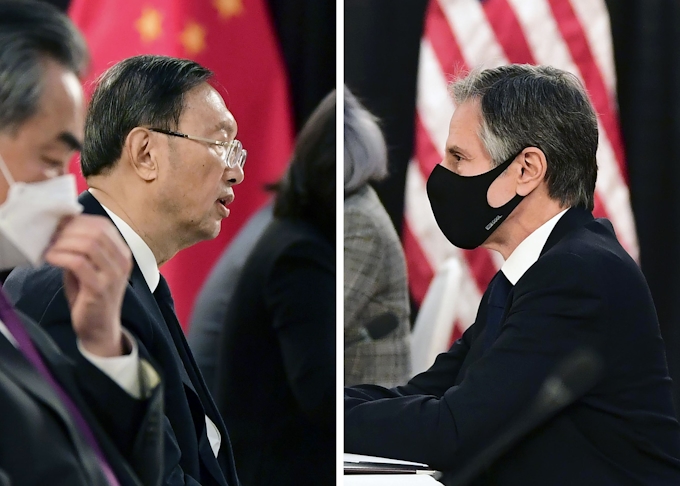
US Should Seek Common Ground with China While Valuing Allies
America announced that it would explore its future policy toward China in consultation with its allies. How it will approach the Chinese regime of Xi Jinping is already an issue of global concern, so this is to be welcomed. Allies, including Japan, should actively participate in the search for common ground with China and contribute to rulemaking.
At the outset of the meeting between the U.S. and China, which stretched over two days in Anchorage, Alaska, an unprecedentedly hostile exchange lasted for over an hour — in front of reporters. America complained about the issues of the Xinjiang Uighur Autonomous Region, Hong Kong, Taiwan and cyberattacks.
U.S. Secretary of State Antony Blinken said that China’s actions “threaten the rules-based order that maintains global stability.” His Chinese counterparts strongly complained about the anti-Chinese network in which major countries participate. Chinese Communist Party Politburo member Yang Jiechi demonstrated the sense of alarm with his argument that “most of the world’s countries do not consider American values as international values.”
On the other hand, Blinken explained to reporters that “on Iran, on North Korea, on Afghanistan, on climate, our interests intersect.” He suggested that if China participates in certain regional stability issues, a compromise could be reached.
There are many aspects of the climate change problem where cooperation can be anticipated. The focus will be on cooperation at the climate change summit that U.S. President Biden has planned for late April.
China has already revealed its long-term plans to bolster its national power by 2035 and become a mid-level developed country. It even introduced part of this at the Alaska conference. Its national strategy is clearly to surpass America, and it will be all the harder to relax the confrontation if it gets entangled in a medium- to long-term struggle for supremacy. The deferment of the trade issue, which China cares deeply about, also demonstrates the severity of the struggle.
There is a way for China to be welcomed by the liberal and democratic countries while growing peacefully: abandon its foreign policy of changing the situation by force and restrain its economic pressure on countries that do not accept China’s demands. That comes first.
If the clash between the world’s largest and second-largest economies intensifies, the effect on a global economy weakened by the COVID-19 disaster would be huge. Now is the time to find common ground.
